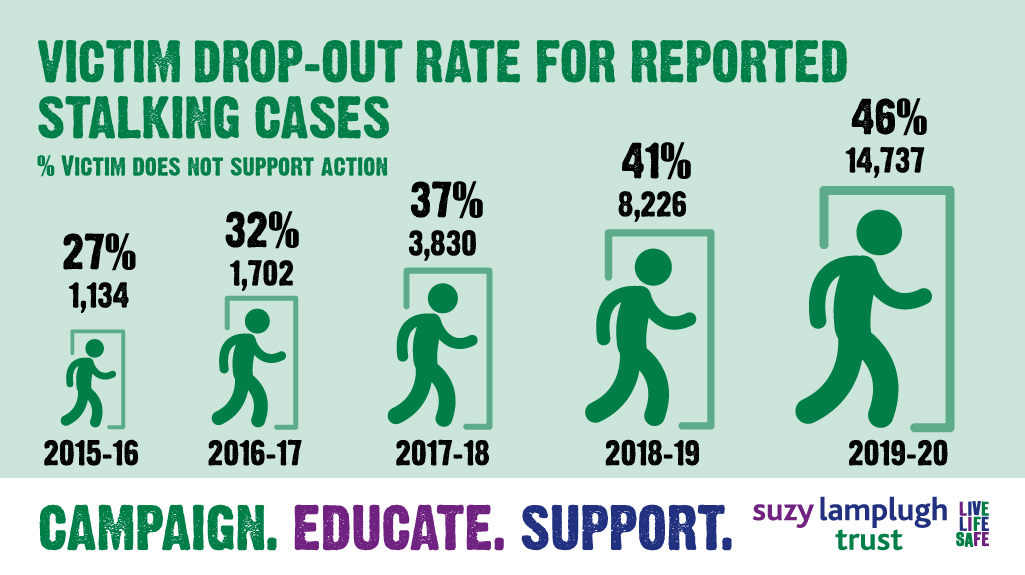The Suzy Lamplugh Trust are calling for action to tackle what they describe as ‘shockingly low’ conviction rates for stalking.
It’s been 35 years since the Fulham estate agent vanished while out on a work call, the Trust believe more needs to be done to make sure reports of stalking are taken seriously.
According to findings from the Crime Survey for England and Wales, in the year ending March 2020 there were estimated to be over 25,000 adult stalking victims.
However, information from the Suzy Lamplugh Trust puts the number of stalking incidents in the year 2019-2020 as being at 1.5million, with a conviction rate of just 0.1%.
As the data shows, in every example women were considerably more likely to be the victims of stalking than men.
The difference increases markedly when looking at stalking by an intimate partner, adding to fears that gender based crimes and violence reported against women are still not taken seriously enough.
While overall crime rates in England and Wales have dropped since the COVID 19 pandemic, incidents involving stalking and harassment have gone up.
Violet Alvarez, Senior Policy and Campaigns Officer for the Suzy Lamplugh Trust, said: “What is really needed is in depth specialists and regular training for police officers.
“We need to make sure that when somebody reports stalking they’re taken seriously, they’re believed, but also that the police officer responding to the incident understands what stalking is.
“A lot of victims when they’re calling our helpline say that they really feel like that pattern of behaviour is not at all understood by police officers.
“Instead of looking at it as a campaign of fear and intimidation, which is what stalking is, they’ll just respond to that one recent incident that the victim is reporting which really misses the point.
“There’s a big drop from report to charges, there’s a big drop from charges to prosecutions and then from prosecutions to convictions as well.
“A lot of victims tend to drop the charges because they find it too emotionally challenging.”
This means the actual number of stalking victims could be much higher than official data suggests.

Crimes such as cyber stalking, hacking and tracking over social media and domestic abuse have also risen in the past year, although official figures for after March 2020 have yet to be released.
The Trust are also asking for a national task group independent from the government to examine the low conviction rates and a change in our cultural attitudes to gender-based crimes.




